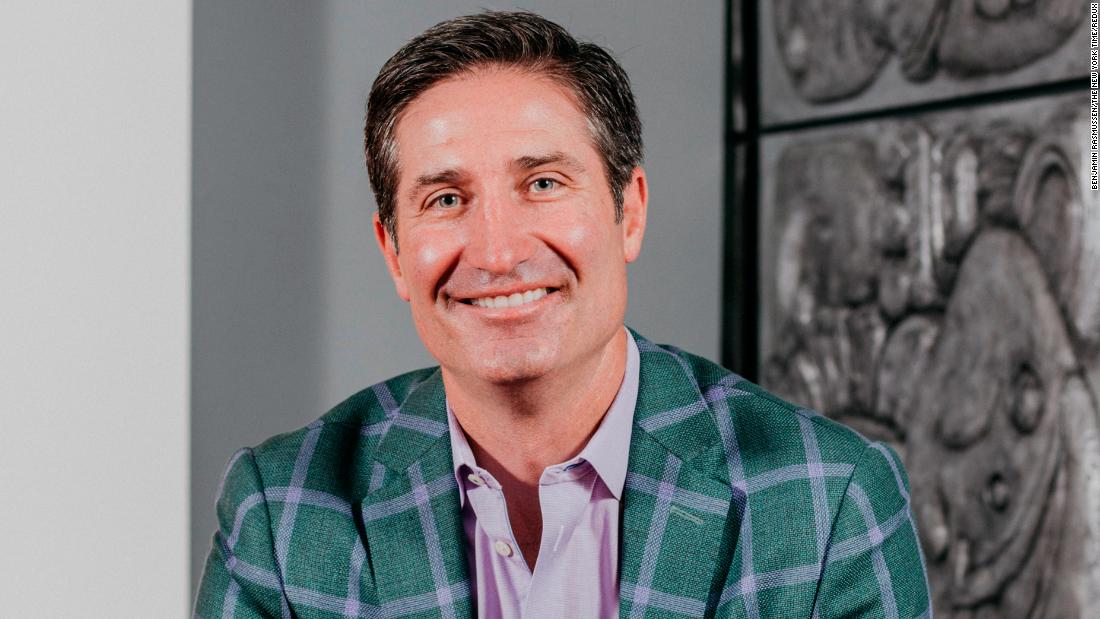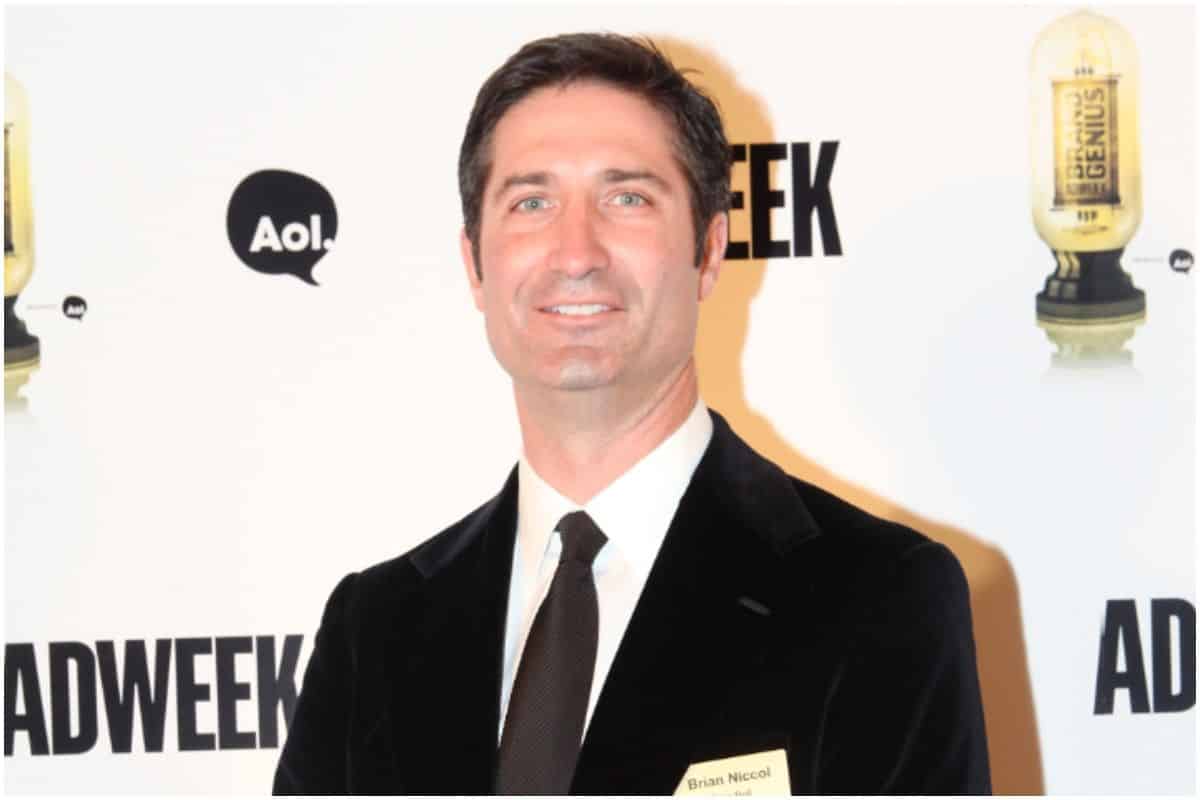Brian Niccol’s Career Trajectory and Compensation

Brian Niccol’s career trajectory is marked by consistent upward mobility and a knack for leading successful companies in the food and beverage industry. His journey from a marketing executive to a CEO reflects his adaptability and strategic acumen, culminating in a significant rise in his compensation over the years.
Brian Niccol’s Career Progression
Niccol’s career began in 1993 at PepsiCo, where he honed his marketing skills and rose through the ranks. He then moved on to Yum! Brands, holding various leadership roles, including President of Taco Bell. His success at Taco Bell, particularly in driving sales and innovation, propelled him to the position of CEO of Pizza Hut in 2014. This experience further solidified his reputation as a turnaround expert and a leader capable of driving growth in highly competitive markets.
In 2017, Niccol joined Domino’s Pizza as CEO, marking a significant step in his career. His leadership at Domino’s was instrumental in transforming the company’s digital strategy and accelerating its global expansion. He oversaw a period of significant revenue growth and profitability, solidifying Domino’s position as a dominant force in the pizza delivery industry.
Factors Influencing Brian Niccol’s Compensation
Niccol’s compensation has consistently increased over his career, reflecting his performance and the industry’s competitive landscape. Several factors have likely contributed to this trend:
- Industry Trends: The food and beverage industry is highly competitive, with companies constantly seeking to innovate and capture market share. CEOs with a proven track record of driving growth and profitability are highly sought after, and their compensation reflects this demand.
- Company Performance: Niccol’s compensation has been closely tied to the performance of the companies he has led. His success in driving sales, increasing profitability, and enhancing brand value has directly translated into higher compensation packages.
- Personal Contributions: Niccol’s leadership skills, strategic vision, and ability to adapt to changing market dynamics have been key drivers of his success. His contributions to the companies he has led have been recognized through generous compensation packages.
Brian Niccol’s Salary History
Niccol’s salary history is a testament to his successful career trajectory:
- 1993-2000: PepsiCo – Early career at PepsiCo, with a steady increase in salary as he progressed through various marketing roles.
- 2000-2014: Yum! Brands – Niccol’s salary significantly increased during his time at Yum! Brands, particularly during his tenure as President of Taco Bell, reflecting his success in driving sales and innovation.
- 2014-2017: Pizza Hut – Niccol’s compensation package increased further as he took on the role of CEO of Pizza Hut, reflecting his leadership experience and ability to drive growth in a challenging market.
- 2017-Present: Domino’s Pizza – As CEO of Domino’s, Niccol’s compensation has continued to rise, reflecting his success in transforming the company’s digital strategy and accelerating its global expansion. He has received significant stock options and performance-based bonuses, reflecting the company’s strong financial performance under his leadership.
Compensation Structure for CEOs in the Restaurant Industry: Brian Niccol Salary

The restaurant industry, despite its seemingly simple nature, involves intricate business operations, particularly for large chains like McDonald’s. At the helm of these companies are CEOs, who play a crucial role in shaping the direction of the business and driving profitability. Their compensation packages reflect the significant responsibilities and impact they hold. This section delves into the typical compensation structure for CEOs in the restaurant industry, analyzing the key components and factors that influence their earnings.
Typical Compensation Structure
The compensation structure for CEOs in the restaurant industry is typically a mix of base salary, bonuses, stock options, and other benefits. These components are designed to align CEO incentives with shareholder interests and reward them for achieving specific performance goals.
- Base Salary: This forms the foundation of a CEO’s compensation and is usually determined based on the size and complexity of the company, industry experience, and general market trends. Base salaries for CEOs in the restaurant industry can range from hundreds of thousands to millions of dollars annually.
- Bonuses: Bonuses are performance-based incentives that reward CEOs for achieving pre-determined financial targets. These targets can include revenue growth, profit margins, return on investment, and other key performance indicators (KPIs). The bonus structure can be structured as a percentage of base salary or a fixed amount, depending on the specific terms of the employment contract.
- Stock Options: Stock options provide CEOs with the right to purchase company stock at a predetermined price, typically at a discount to the market price. This allows CEOs to share in the company’s growth and provides them with a long-term incentive to increase shareholder value. The number of stock options granted to CEOs can vary depending on the company’s performance and the CEO’s contribution.
- Other Benefits: CEOs often receive a range of additional benefits, including health insurance, retirement plans, life insurance, and paid time off. These benefits are typically in line with industry standards and can vary depending on the company’s size and resources.
Brian Niccol’s Compensation Package
Brian Niccol’s compensation package at McDonald’s is a prime example of the typical structure Artikeld above. He receives a base salary, performance-based bonuses, stock options, and other benefits. The specifics of his compensation package are publicly disclosed in McDonald’s annual proxy statement. Comparing Niccol’s compensation to other CEOs in the restaurant industry, it’s evident that his package is competitive, aligning with the industry norm.
Factors Influencing CEO Compensation
Several factors influence CEO compensation in the restaurant industry, including:
- Company Size: Larger companies with more revenue and a broader market reach tend to pay their CEOs higher salaries and offer more generous benefits. This is because these CEOs are responsible for managing more complex operations and overseeing a larger workforce.
- Profitability: CEOs of profitable companies are typically rewarded with higher compensation. This reflects the strong financial performance of the company and the CEO’s ability to generate profits for shareholders.
- Market Performance: The performance of the company’s stock price and overall market share can also influence CEO compensation. CEOs who lead their companies to outperform their competitors are often rewarded with higher bonuses and stock options.
- Industry Trends: The overall performance of the restaurant industry also plays a role in CEO compensation. During periods of strong economic growth and consumer demand, CEOs in the industry tend to receive higher compensation packages. Conversely, during periods of economic downturn or industry challenges, CEO compensation may be adjusted downwards.
Impact of Brian Niccol’s Leadership on Domino’s Financial Performance

Brian Niccol’s tenure as CEO of Domino’s Pizza, Inc. (DPZ) has been marked by significant transformation and a notable shift in the company’s financial performance. His leadership has been instrumental in driving growth and profitability, positioning Domino’s as a leader in the quick-service restaurant (QSR) industry.
Key Initiatives and Strategies
Niccol’s leadership at Domino’s has been characterized by a focus on innovation, technology, and customer experience. His key initiatives have been aimed at enhancing operational efficiency, expanding delivery capabilities, and leveraging digital platforms to engage customers.
- Digital Transformation: Domino’s has heavily invested in its digital infrastructure, creating a seamless ordering experience across multiple channels, including its website, mobile app, and voice assistants. This digital focus has significantly increased convenience for customers, driving online orders and overall sales.
- Delivery Optimization: Niccol has prioritized enhancing delivery efficiency by implementing technologies like GPS tracking, real-time order monitoring, and driver scheduling. These improvements have led to faster delivery times, improved customer satisfaction, and reduced operating costs.
- Product Innovation: Domino’s has introduced a series of new products and menu items under Niccol’s leadership, catering to evolving customer preferences and dietary needs. These innovations have helped maintain a competitive edge and attract new customer segments.
- Strategic Partnerships: Niccol has fostered strategic partnerships with companies like Grubhub and Uber Eats, expanding Domino’s reach and accessibility to a wider customer base. These collaborations have further amplified Domino’s digital presence and delivery capabilities.
Financial Performance Under Niccol’s Leadership
Niccol’s leadership has had a profound impact on Domino’s financial performance. The company has consistently exceeded industry growth rates, demonstrating strong revenue growth, increased profitability, and an expanding market share.
- Revenue Growth: Domino’s revenue has consistently grown under Niccol’s leadership. From 2015 to 2022, the company’s annual revenue has increased significantly, demonstrating the effectiveness of its growth strategies. This growth has been driven by factors such as increased same-store sales, expansion into new markets, and the success of its digital initiatives.
- Profitability Improvement: Domino’s profitability has also seen significant improvement during Niccol’s tenure. The company’s operating margin has expanded consistently, reflecting the success of its cost-cutting measures and operational efficiencies. This increased profitability has allowed Domino’s to reinvest in its business and expand its operations.
- Market Share Expansion: Domino’s has gained market share in the pizza industry under Niccol’s leadership. The company has consistently outperformed its competitors in terms of sales growth and customer satisfaction. This expansion has been attributed to factors such as its innovative product offerings, its focus on delivery, and its strong brand recognition.
Correlation Between Niccol’s Leadership and Domino’s Financial Success, Brian niccol salary
There is a clear correlation between Niccol’s leadership and Domino’s financial success. His strategic vision, focus on innovation, and commitment to customer experience have been key drivers of the company’s growth and profitability.
Niccol’s ability to adapt to changing market dynamics and embrace technology has been instrumental in positioning Domino’s as a leader in the QSR industry. His leadership has transformed the company from a traditional pizza chain into a digitally-driven, customer-centric organization.
Brian niccol salary – It’s natural to be curious about the financial success of someone like Brian Niccol, especially given his impressive career trajectory. You might find his LinkedIn profile, brian niccol linkedin , revealing in terms of the companies and roles he’s held, offering insight into the kind of experience and leadership that likely contribute to his salary.
It’s natural to be curious about the financial success of someone like Brian Niccol, whose work has captivated audiences worldwide. His films explore complex themes and often present thought-provoking narratives. To get a better understanding of his financial standing, you can find more information about brian niccol salary online.
This kind of information can provide a glimpse into the economic realities of the film industry and the impact of successful filmmaking.
